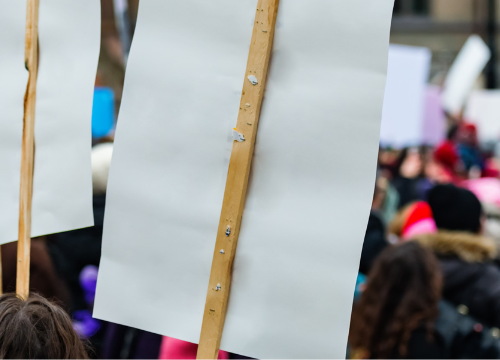Law Enforcement and Digital Technologies: Strengthening Human Rights Safeguards for Facilitation of Peaceful Protests
Event


Adobe
As part of his practical tools for law enforcement, the UN Special Rapporteur on the Rights to Freedom of Peaceful Assembly and of Association Clément Nyaletsossi Voule, developed – in collaboration with the United Nations Office on Drugs and Crime (UNODC) and the Office of the United Nations High Commissioner for Human Rights (OHCHR) – a Digital Technologies component dedicated to the human-rights compliant use of digital technologies by law enforcement in the context of peaceful protests. The Digital Technologies component provides practical guidance and foundational principles for law enforcement uses of technology in strict compliance with human rights for the facilitation of peaceful protests.
This panel discussion is co-organized with the UN Special Rapporteur on the Rights to Freedom of Peaceful Assembly and of Association, the University of Essex and Queen Mary University of London, with the support of OHCHR and UNODC. It brings together Member States, civil society organizations, and experts and places particular attention on the spread of the use of emerging digital technologies for law enforcement purposes and the impact on human rights and freedoms. It will explore how the digital technologies component can help close the protection gap and advance human rights and accountable use of technologies by law enforcement to effectively facilitate peaceful protests.
Moderation
- Erica Harper, Head of Research and Policy Studies, Geneva Academy
Panelists
- Clément Nyaletsossi Voule, United Nations Special Rapporteur on the Rights to Freedom of Peaceful Assembly and of Association and Researcher, Geneva Academy
- Daragh Murray, Queen Mary University of London
- Wendy O’Brien, Technology, Human Rights, and Access to Justice Crime Prevention and Criminal Justice Section Division for Treaty Affairs United Nations Office on Drugs and Crime
Reception
The panel discussion will be followed by a networking reception.
Disclaimer
This event may be filmed, recorded and/or photographed on behalf of the Geneva Academy. The Geneva Academy may use these recordings and photographs for internal and external communications for information, teaching and research purposes, and/or promotion and illustration through its various media channels (website, social media, newsletters, annual report, etc.).
By participating in this event, you are agreeing to the possibility of appearing in the aforementioned films, recordings and photographs, and their subsequent use by the Geneva Academy.









